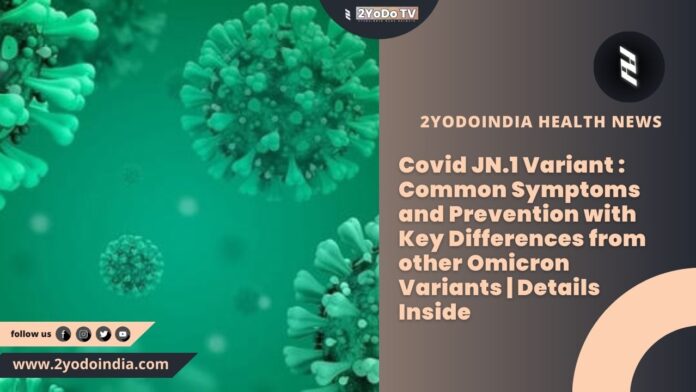Covid JN.1 variant has enter India and as per report over 150 cases of the new strain so far, which has raise alarm bells across different cities. Health authorities have urge to bring back social distancing measures and other preventive measures amid New Year celebrations that can further lead to increase in cases.
Cold temperatures and festive gatherings may allow the virus to spread more easily.
Covid JN.1 is a sub-variant of Omicron lineage and is more transmissible compare to the previous strains.
Experts say it spreads faster than the other Omicron variants but does not cause more severe disease.
Fever, cough, cold, headache, gastrointestinal disorders, breathing issues are some of the common symptoms of Covid JN.1.
Also Experts warn that those with co-morbidities or who have suffer lung damage in previous waves must be careful as the new variant can affect them more.
What is Covid JN.1?
Covid JN.1 is a sub-variant of Omicron, which means it has evolve via some genetic changes from Omicron variant to form the current strain which has found a lot of success in its ability to infect and transmit between people.
Covid JN.1 variant has a much higher transmissibility rate as compare to Omicron which means the number of people it can reach is much higher than it was for Omicron.
Possibly even a small amount of exposure can cause an infection.
If there is even a mild symptom, one must adhere to social distancing norms to protect themselves.
With holiday season the risk of transmission goes up because this is the time we all meet and gather and spend time with our friends and families in closed spaces.
Moreover, this is the winter time when humidity in the air is much lower which allows the moist droplets to hang in the air, increasing the amount of time that it can expose a person to the infection.
Means this new variant differs in the sense that it can spread faster compare to other variants.
As the number of cases increases, we might start to observe more severe cases as well.
The common symptoms we are currently seeing include cough, runny nose, sore throat, body aches, and fever, which can be high-grade.
Headaches are also seen in some cases.
Being genetically different, this variant has the ability to spread more rapidly.
Symptoms of Covid JN.1
JN.1 variant has usual symptoms like fever, fatigue, body ache.
It also has mild gastrointestinal symptoms like mild stomach cramps or loose stools.
Not the major food poisoning.
As a lay person, you cannot find which variant you have.
As Vaccines available in India, there is no evidence to suggest that they are not effective.
If you have vaccinated and boosted, you have done the most in order to protect yourself.
How to Prevent from Covid JN.1?
As there is no need for immediate panic, initial findings suggest that Covid JN.1 may not exhibit increase severity compare to earlier Covid variations.
Nevertheless, comprehensive research is imperative to fully comprehend its behaviour. Vigilance in monitoring its transmissibility and impact on immunity is essential, and both India and the global community are closely scrutinizing these aspects.
To curb the spread of infection, it is vital to adhere to all necessary precautions, including regular handwashing and wearing masks.





